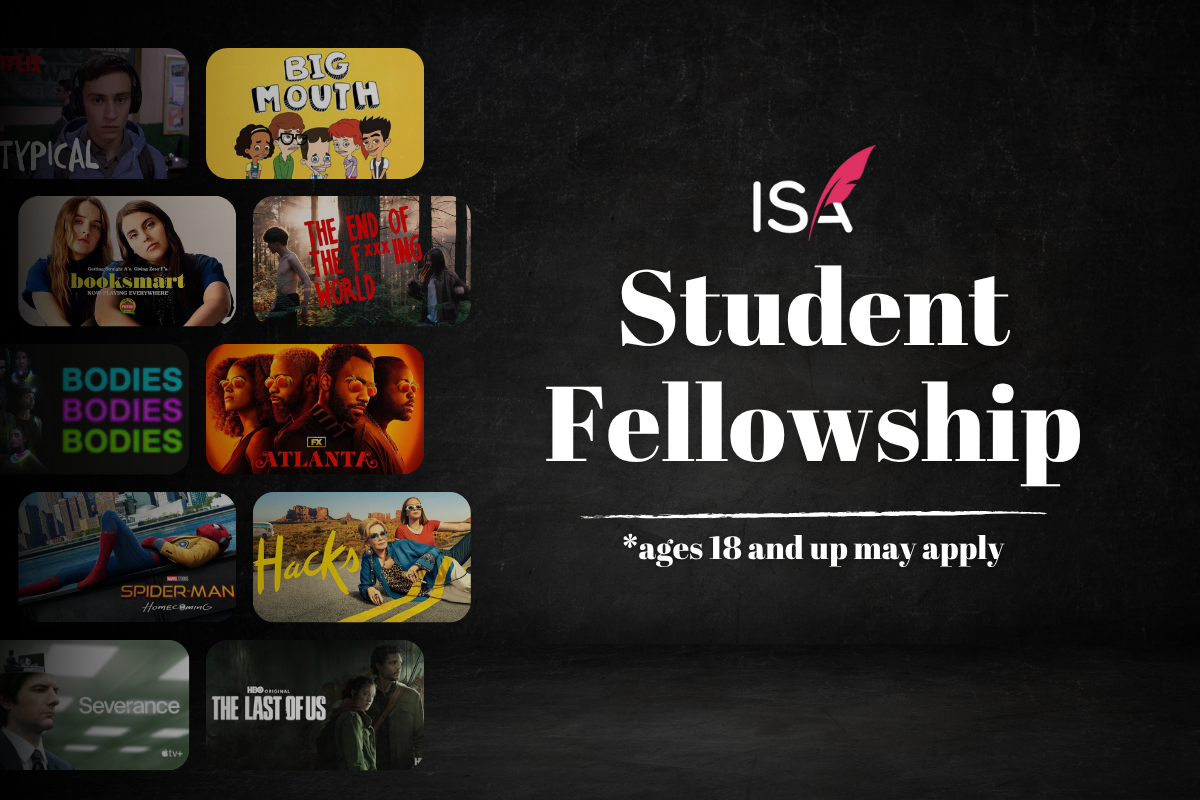Balls of Steel™: Lessons of a Reader
Jeanne Veillette Bowerman shares the many lessons learned from being a screenplay competition reader.
Every once in a while I get an opportunity to help a fellow writer or colleague. Whenever my schedule permits, and even when it doesn’t, I do my best to say, “yes.”
Why would I offer up my time, even when I’m busy?
To learn.
I don’t care how many scripts you’ve written or how many classes you’ve taken; there’s always something to learn. I also happen to be a learning junkie.
This month’s good-deed act was being a panelist on Storyboard TV’s script competition. The task was to read the ten finalists and cast my vote for the top dogs. (Side note: Storyboard is a very cool community of writers who support each other, sharing feedback to continually learn and improve their skills.)
Simple enough… or so I thought.
I’ve entered plenty of competitions in my day, so I am well aware of the work a writer puts in before submission. The stress. Anxiety. Rewrites. Doubt. Calls for feedback from friends. Then clicking the upload button to submit my script at the eleventh hour, after staying up half the night to polish it. I’ve done it all. It was fascinating to sit on the judge’s side of the table. You’d think it would be easy to just read scripts and decide their fate.
Not so much.
Before I go on, I want to share a critical point about TV writing – the audience’s attention span. As you write each scene, each line, and each bit of dialogue, imagine someone standing over your shoulder with a remote control. CLICK. The moment you bore them, the channel gets changed. Viewers are unforgiving. I’m sure when you watch TV, you flip through channels too. For this reason alone, every screenwriter, even a feature writer, should write a TV script at least once in his or her career. You’ll learn a lot about holding a reader’s attention.
I kept that in mind as I read the finalists’ scripts, just as I do when I read my own.
The first thing I did was look at the length of each script. Yep. That thing everyone tells you a reader will do, I did. Why? Because it matters. I’m much more forgiving in a feature script, but in TV, there are strict guidelines about what fits into television formatting. A 61-page script is not going to fit into an hour of programming. Red mark number one.
Next challenge: Grab the reader’s attention… pronto! Not only does it make for great storytelling, but I assure you, by the time a reader sits down to read a competition script, they’ve already had a full day of work, kids, dinner, laundry, and who knows what else. They’re most likely exhausted.
The scripts that didn’t grab my attention immediately were put to the side until I found one that did. Before you start screaming at me for not reading the scripts, I read them. I’m merely pointing out if they didn’t grab me immediately, they were put in Pile B… not a pile you want to be in. Pile B means you didn’t give me a good first impression. I’m Sicilian. I don’t forget that. Another red mark… in permanent ink.
But I’m not heartless. If the script did end up telling a great story with interesting, multi-layered characters, I moved it to a pile that was in between Pile A and Pile B. The characters have to be ones I want to tune into every single week and follow. It’s critical. If the people were flat or the world the pilot episode was set in wasn’t interesting, it went into Pile C… which means it’s a show I’d never tune in for. The world itself has to have enough potential for at least 100 episodes.
Avoid distracting the reader with poor grammar and misspellings. If I see a mistake on page one, it’s a red flag. But if I'm deep into the script, already engaged and happily turning the pages, I’m more likely to not care if a word or two are out of place or commas are missing. By that time, it’s all about story for me… but only if the story is solid. If I’m not engaged, I’m more likely to notice the typos. Spellcheck, people. It’s there for a reason.
Accuracy isn’t only about grammar. Facts need to be accurate too. You never know what life experience a reader has. If he or she knows more about the world you’re writing than you do, you’re in trouble. In one of the scripts I read, I knew the world well, and the writer lost credibility, and my attention, immediately. Again, another distraction. Red mark.
Dialogue that’s heavy in exposition never sounds natural. When I’m reading a script, I always imagine an actor saying those on-the-nose lines and cringing. Try this trick: When you’re writing a scene, imagine you just walked into the room, never having seen these people before, and you’re an unseen voyeur in the corner. How do you think that conversation would go between the characters if you freed them of the responsibility of educating you? Is there a way to show what’s happening in dialogue subtext, or in the character’s actions, or perhaps the setting of the scene itself can speak volumes? Believe me, I know how hard it is to keep expositional dialogue out of a script, but it’s our job to make the dialogue believable. Work on that before submitting your script to a contest or an industry executive. It separates the amateurs from the pros.
Another area to pay attention to is formatting. Your final draft should be flawless. If you have a question on how to format a text message, a phone call, then look it up. My quick reference is Dr. Format Answers Your Questions. It’s never taken me more than two minutes to find an answer there. Bottom-line, with hundreds and even thousands of scripts and queries going past a reader’s desk, don’t give them a reason to pass. Double and triple check your work.
Let me give you a simple example: In one script I read, the very first page had what appeared to be a note to the reader from the character. While the content of the note was well-written and interesting, it still perplexed me. Was this note meant for the reader, or was it intended to be text on the screen, and they forget to format it “OVER BLACK”?
Page one, and I was already distracted. Don’t do this. As Dave Trottier (aka Dr. Format) said in last week’s Scriptchat, you aren’t allowed to be Shane Black.
After my good-deed-of-the-month reading experience, what did I learn? Being a reader isn’t as easy as you think, mostly because I’m also a writer. There’s no way I could sit in “judgment” of a writer and not understand the endless decisions and efforts they made in order to write the script in front of me.
Empathy is a beautiful thing… but it doesn’t change a first impression.
Dave Trottier has been writing for Script Magazine since its inception, thirty years ago. We are delighted to announce he’ll continue to write for ScriptMag.com! All of his posts can be found on his author page. Bookmark it.
Jeanne Veillette Bowerman is a Senior Executive at Pipeline Media Group and Book Pipeline, Editor-in-Chief of Pipeline Artists, Director of Symposium—a year-round conference in the arts, co-host "Reckless Creatives" podcast, partner at Fringe Press, former Editor-in-Chief of Script magazine and a former Senior Editor at Writer's Digest. Recognized as one of the "Top 10 Most Influential Screenwriting Bloggers," her "Balls of Steel" column was selected as recommended reading by Universal Writers Program. A compilation of her articles is now available at The Writers Store—Balls of Steel: The Screenwriter's Mindset. She is also Co-Founder and moderator of X's weekly screenwriters’ chat, #Scriptchat, and wrote the narrative adaptation of the Pulitzer Prize-winning book, Slavery by Another Name, with its author, Douglas A. Blackmon, former senior national correspondent of The Wall Street Journal. More information can be found on her website. X: @jeannevb | IG/Threads: @jeannevb_ | BlueSky: @jeannevb.bsky.social







